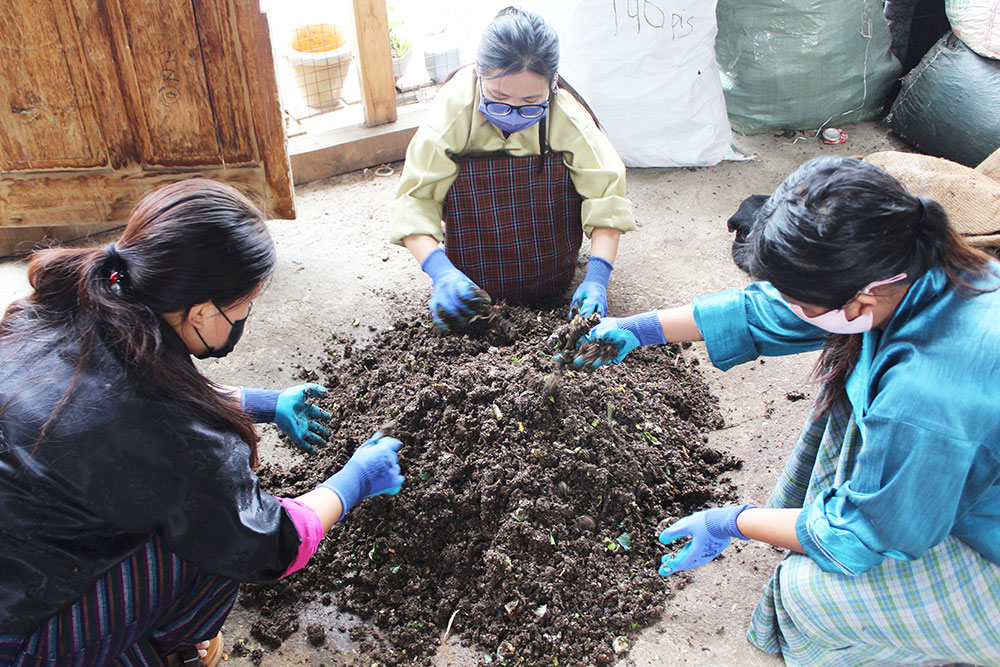Chhimi Dema
As waste keeps growing in the country, three graduates from Sherubtse College are converting food waste to compost.
They are hopeful that after their current funding support ends, they would receive other organisations’ help to take their initiative forward.
Tshering Wangmo, 21, said that they started the initiative to compost food waste realising the amount of food waste generated in the country.
“If the food waste is dumped they emit greenhouse gases and factors that grow food becomes wasted,” she said, adding that making compost was a solution to help address the issue.
According to the report, Nation’s Weight on the Scale, published by the National Statistics Bureau, 46 percent of the waste comprises of food waste, “indicating the potential for composting”.
Food waste comprises all kitchen wastes such as leftover foods, vegetable peelings, rotten vegetables, meat items, eggshells, and others.
The initiative was supported by the Youth Advocacy Network of Bhutan (YAN Bhutan) through their Local Eco-Action initiative programme.
Tshering Wangmo said that the team require financial support to invest in space, machinery and equipment.
Another member, Tashi Dema, said that people show support in their effort.
She said: “We are yet to reach out to the organisation for help. But I am positive that they would have confidence in what we do and support us.”
Even if they do not get support, they would be proud to have learned something, she added.
A report published by the UN Economic and Social Commission for Asia and the Pacific states that from the total waste generated in Bhutan, around 41 percent goes to the landfill, 17 percent went to the environment, 14 percent each went to recycle or reuse and burn, 10 percent were exported, and two percent were compost, and the rest underwent other treatment processes.
“We would not be able to start as soon as we get funding,” Tshering Wangmo said. “We are fresh graduates and there is much to learn for us.”
The team said that they were reading and learning about compost online and checking the equipment that was required for the compost plant.
“It makes us proud to give back to the earth. I am happy doing this,” Tashi Dema said.
According to the UN environment programme’s Food Waste Index Report 2021, around 931 million tonnes of food waste was generated in 2019, 61 percent of which came from households, 26 percent from food service and 13 percent from retail suggesting the 17 percent of total global food production may be wasted.
“Food waste reduction offers multi-faceted wins for people and planet, improving food security, addressing climate change, saving money and reducing pressures on land, water, biodiversity and waste management system,” the report stated.
Edited by Jigme Wangchuk


